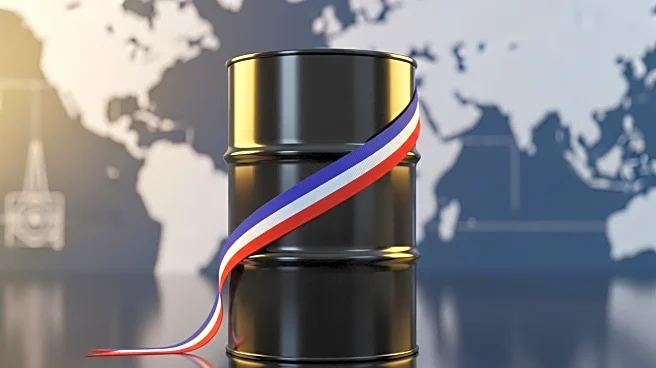What's Happening?
President Trump has proposed that the EU impose tariffs of up to 100% on China and India over their imports of Russian oil, aiming to pressure President Vladimir Putin into peace talks for Ukraine. Trump communicated this proposal to EU diplomats during a meeting in Washington, emphasizing the U.S.'s readiness to implement similar tariffs if the EU agrees. The strategy is intended to halt Russian oil purchases by China and India, thereby forcing Russia into negotiations. However, the EU faces challenges in achieving consensus on such tariffs, with some member states opposing sanctions on Russian energy without concessions.
Why It's Important?
President Trump's proposal reflects the geopolitical complexities surrounding the Ukraine conflict and the global energy market. The suggested tariffs could significantly impact international trade and diplomatic relations, particularly between the U.S., EU, China, and India. If implemented, the tariffs could disrupt global oil supply chains and affect energy prices, with potential economic repercussions for importing countries. The proposal highlights the strategic use of economic measures in foreign policy, aiming to influence Russia's actions and support Ukraine. The EU's response will be critical in determining the effectiveness and feasibility of this approach.
What's Next?
The EU will need to deliberate on the proposed tariffs and assess their potential impact on member states and global trade. The U.S. and EU may explore coordinated sanctions to increase pressure on Russia, with discussions ongoing in Washington. Stakeholders will watch for reactions from China and India, as well as potential shifts in energy trade dynamics. The proposal may influence future diplomatic strategies and international relations, as countries navigate the complexities of the Ukraine conflict and global energy security.








